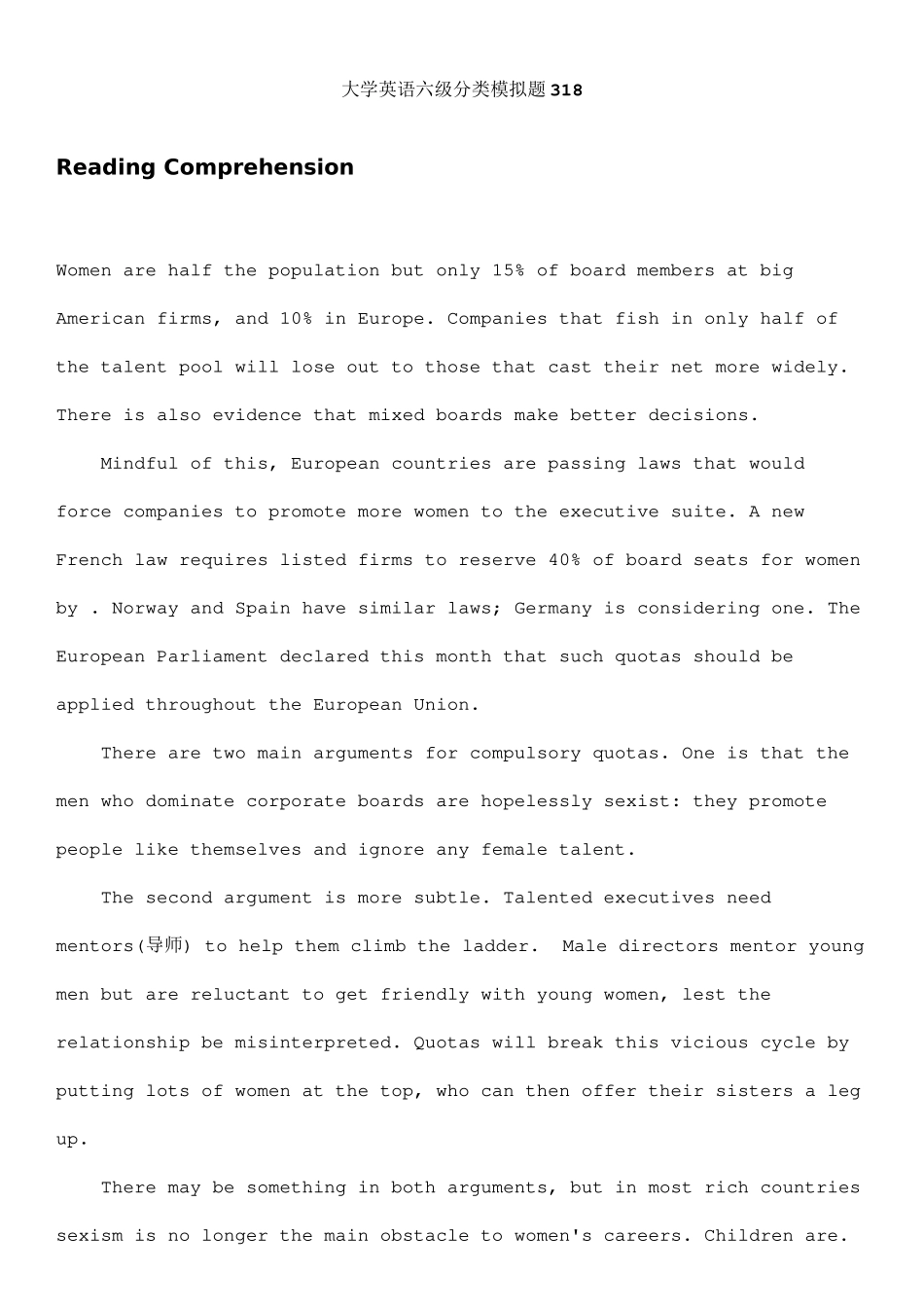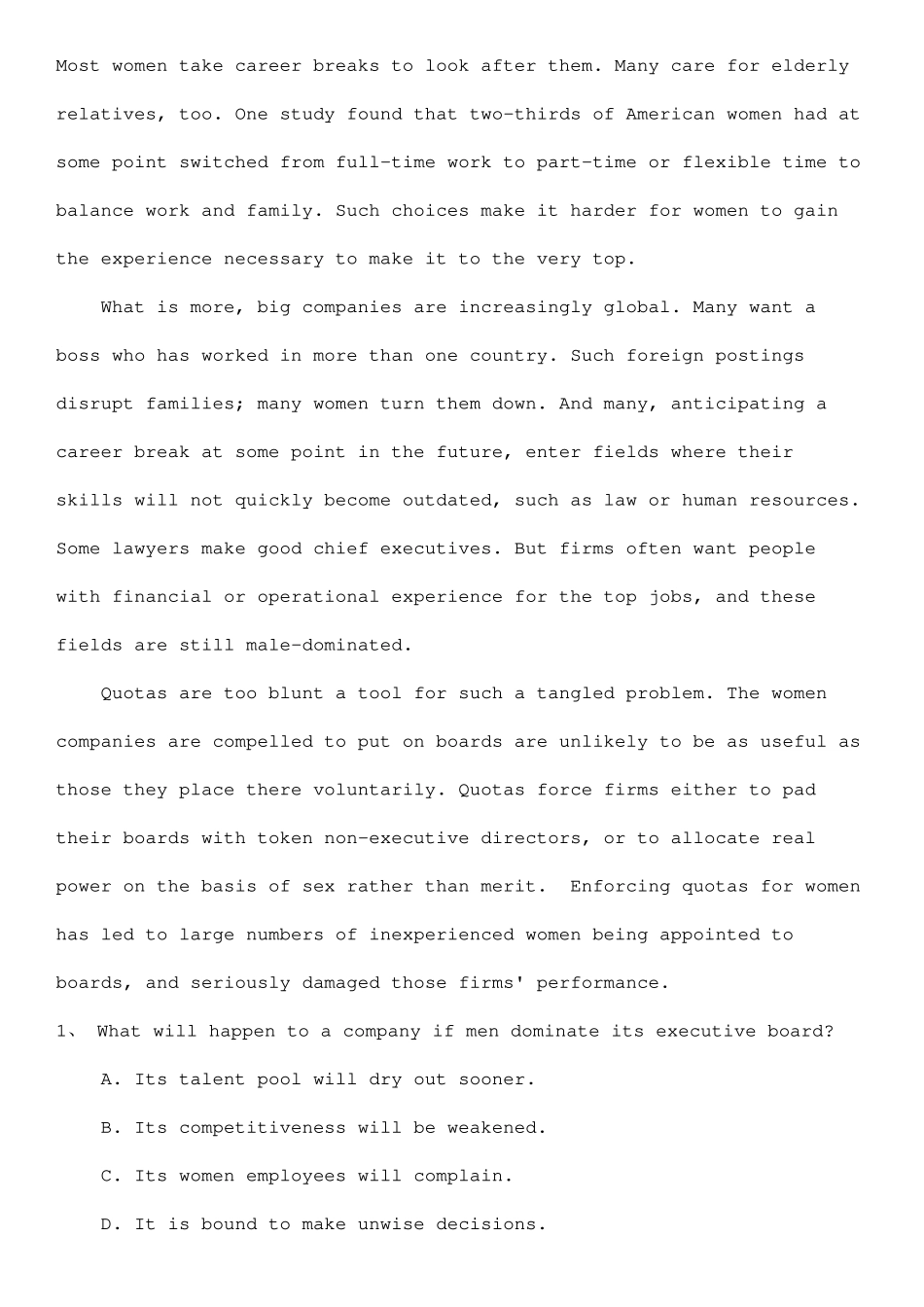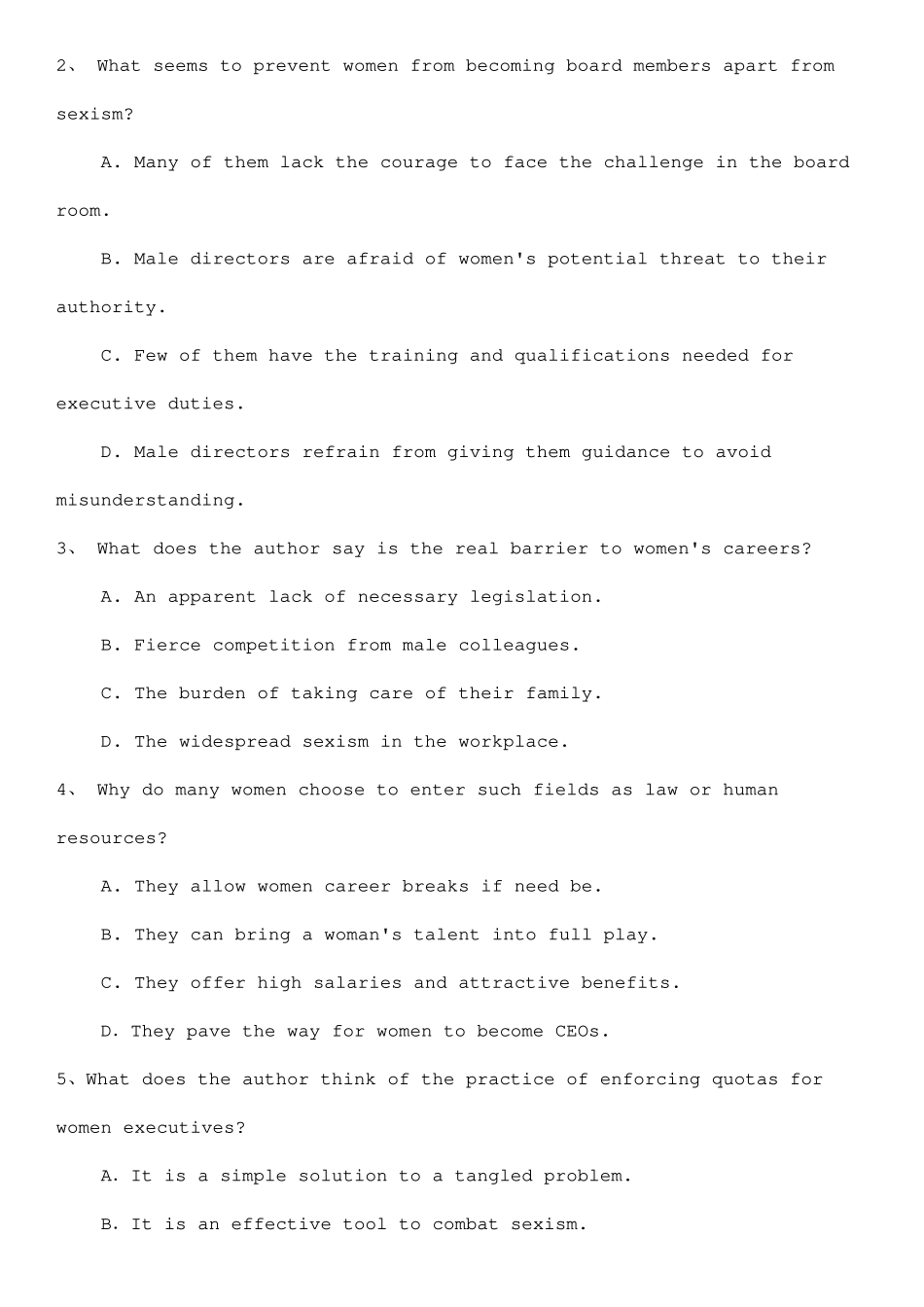大学英语六级分类模拟题 318Reading ComprehensionWomen are half the population but only 15% of board members at big American firms, and 10% in Europe. Companies that fish in only half of the talent pool will lose out to those that cast their net more widely. There is also evidence that mixed boards make better decisions. Mindful of this, European countries are passing laws that would force companies to promote more women to the executive suite. A new French law requires listed firms to reserve 40% of board seats for women by . Norway and Spain have similar laws; Germany is considering one. The European Parliament declared this month that such quotas should be applied throughout the European Union. There are two main arguments for compulsory quotas. One is that the men who dominate corporate boards are hopelessly sexist: they promote people like themselves and ignore any female talent. The second argument is more subtle. Talented executives need mentors(导师) to help them climb the ladder. Male directors mentor young men but are reluctant to get friendly with young women, lest the relationship be misinterpreted. Quotas will break this vicious cycle by putting lots of women at the top, who can then offer their sisters a leg up. There may be something in both arguments, but in most rich countries sexism is no longer the main obstacle to women's careers. Children are. Most women take career breaks to look after them. Many care for elderly relatives, too. One study found that two-thirds of American women had at some point switched from full-time work to part-time or flexible time to balance work and family. Such choices make it harder for women to gain the experience necessary to make it to ...


